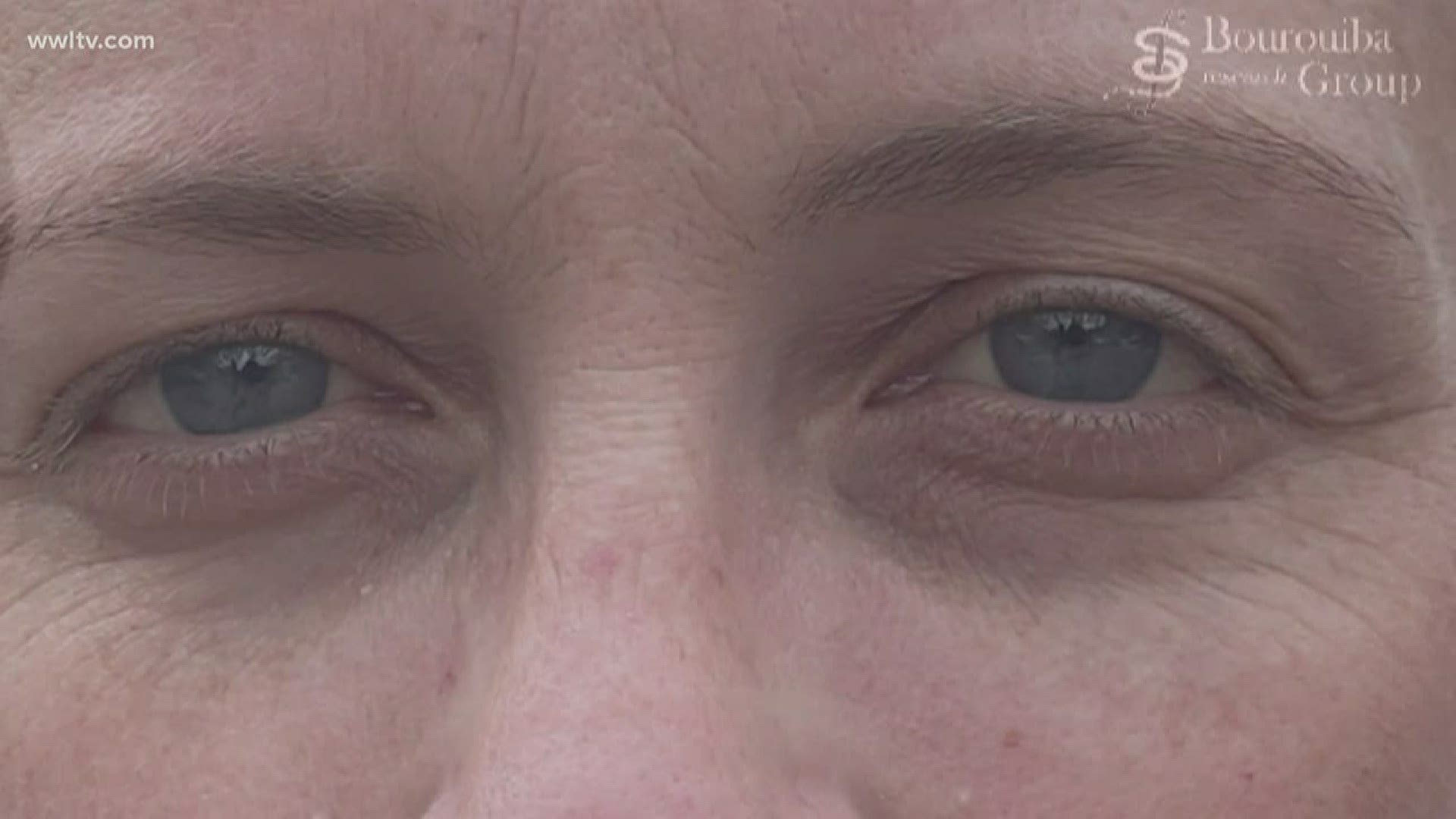NEW ORLEANS — It’s an interview that has people talking about another way the coronavirus can spread: An internationally known virus expert said he thinks he was infected through his eyes.
And now as businesses are reopening, we ask an expert do we need to protect our eyes.
Dr. Joseph Fair recently went on national TV from his hospital bed in New Orleans. He was very sick with COVID-19. People took note of what he said because he’s a world expert on viruses and public health. He believes he got the virus on a crowded plane through his eyes.
He had a mask and gloves on. So LSU Health infectious disease expert Dr. Fred Lopez explained the science behind this.
"It showed that in addition to the fact that eye secretions could contain the virus, the virus persisted in the eye secretions longer than it was detected in the nasopharyngeal swab," LSUHSC Infectious Disease Expert Dr. Fred Lopez said about a recently published study.
And Dr. Lopez says doctors know why eyes are an entryway into the body.
"We also know that there are receptors to which the COVID-19 virus can enter the body, the same type of receptors that are found in the nose and the lung."
So how does this SARS-2 coronavirus get in your eyes? Well, you could touch a contaminated surface then rub or touch your eyes. Or someone could just talk, or cough or sneeze without a mask and microscopic droplets, that can linger in the air for a while, get in your eyes.
"There are some initial reports from China that appear to show that eye exposure was thought to be responsible for infections with some early reports from Wuhan" Dr. Lopez said.
In fact, WWL-TV investigative reporter David Hammer said before he got sick and tested positive for the virus, his eyes were very irritated.
"Conjunctivitis is described in COVID-19, so yes, it is reported and i think it may very well have been reflection of the illness," Dr. Lopez said.
So remember when you wear a mask, you are not only giving yourself some protection, but you are mostly protecting others from your droplets. But wearing eye protection, protects you.
"I think anything that can minimize your potential risk is not an unreasonable thing to be pursuing, glasses, goggles, goggles better than glasses," he suggested.
Try to use any barrier that helps. The best protective masks and goggles are ones that fit securely against the face and have no gaps.
RELATED: No new COVID-19 deaths in Orleans, Jefferson in Monday numbers; cases on the rise in Acadiana
► Get breaking news from your neighborhood delivered directly to you by downloading the new FREE WWL-TV News app now in the IOS App Store or Google Play.

